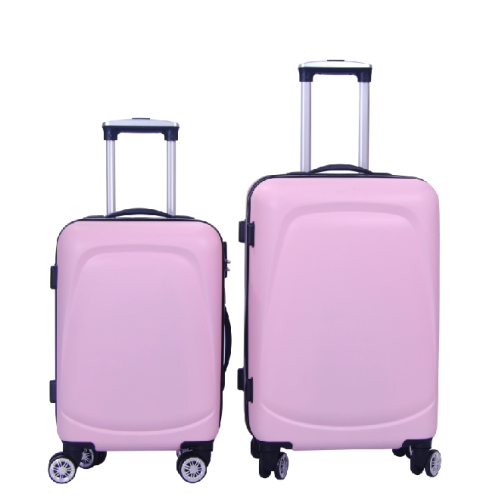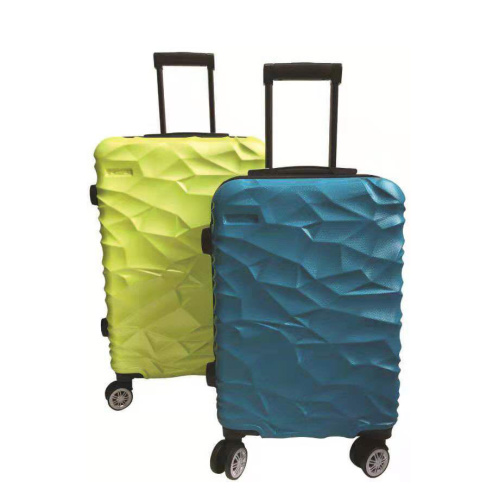A soft pack factory processing cooking packaging, backpacks bag breaking rate of up to 45%, and later found the cause with the help of the ink factory and found a solution. This method of using the exclusion method to find the real problem is worthy of industry reference.
The problem arises: up to 45% of steamed and broken bags
A person in the industry encountered such problems: Before receiving a customer from Guangdong, he reported that the use of our company's resistance to cooking ink and cooking resistance of processed NY//CPP cooking packaging had a high bag breaking rate (up to 45%). Using another brand of cooking-resistant adhesive also produces the same phenomenon. Manufacturers send luggage bags and some materials. Please check what causes it.
Check the reason: it is determined that the bagging problem caused by heat sealing process
By inspecting the packaging bag, it was found that the packaging bag had a quality problem with heat sealing, and the packaging bag was heat-sealed by hand pulling, the heat sealing strength was not very good, and the heat sealing edge was particularly poor in 1 to 2 mm, and the heat sealing between CPP and CPP could be very good. Easily pulled apart, but the composite strength of NY/CPP cannot be peeled off. At the same time, it is put into the bag by hand, and the edges of the CPP and CPP are heat-sealed. Therefore, we believe there is a problem with the heat seal process.
Exclude reason: Exclude one by one according to the factors affecting the heat sealing process
1. The type, thickness, and quality of the heat seal layer material have a decisive influence on the heat seal strength.
Typical heat sealing materials commonly used in composite packaging include CPE, CPP, EVA, hot-melt adhesives, and other ionic resin co-extruded or blended modified films. The thickness of the heat seal layer material is generally between 20 and 80 μm, and in special cases up to 100 to 200 μm. For the same type of heat seal material, the heat seal strength increases with the heat seal thickness. The heat seal strength of the cooking bag is generally required to be 40-50N. Therefore, the thickness of the heat seal material should be 60-80 μm or more.
2. The effect of heat sealing temperature on heat seal strength is most direct.
The melting temperature of various materials directly determines the minimum sealing temperature of the composite bag. In the production process, the heat sealing temperature actually used is often higher than the melting temperature of the heat sealing material because of the effects of the heat sealing pressure, the bag making speed, and the thickness of the composite substrate.
The smaller the pressure of the heat seal, the higher the heat seal temperature; the faster the machine speed, the thicker the surface layer material of the composite film and the higher the required heat seal temperature. If the heat sealing temperature is lower than the softening point of the heat sealing material, no matter how to increase the pressure or prolong the heat sealing time, it is impossible to make the heat sealing layer really seal. However, if the heat sealing temperature is too high, it can easily damage the heat sealing material at the welding edge and melt extrusion, resulting in "root cut" phenomenon, greatly reducing the heat sealing strength of the seal and the impact resistance of the bag.
3, to achieve the ideal heat seal strength, a certain amount of pressure is essential.
For light and thin bags, the heat seal pressure must reach at least 2kg/cm2, and increase accordingly with the increase of the total thickness of the composite film.
If the heat sealing pressure is insufficient, it is difficult to achieve true fusion between the two layers of film, resulting in partial heat sealing is not good, or it is difficult to escape the bubbles trapped in the middle of the weld seam, resulting in an as-welded; of course, the heat seal pressure is not greater Well, should not damage the welding edge is appropriate, because at a higher heat sealing temperature, the welding edge of the heat sealing material is in a semi-molten state, too much pressure is easy to squeeze part of the heat sealing material, so that the weld edge formation In the half cut state, the weld seam is brittle and the heat seal strength is reduced.
4. The heat sealing time is mainly determined by the speed of the bag making machine.
Heat sealing time is also a key factor affecting the weld seal strength and appearance. With the same heat sealing temperature and pressure and long heat sealing time, the heat sealing layer is more fully fused, and the bonding is stronger. However, the heat sealing time is too long, which may cause wrinkling of the weld seam and affect the appearance.
5, if the seal after heat sealing is not good.
This not only affects the flatness of the appearance of the weld, but also has a certain influence on the heat seal strength. The cooling process is to eliminate the stress concentration process by setting the weld seam immediately after melting and sealing with a lower temperature under a certain pressure. Therefore, the pressure is not enough, the cooling water circulation is not smooth, the circulation is not enough, the water temperature is too high, or the cooling is not timely, it will cause poor cooling, the heat sealing edge will rise, and the heat sealing strength will decrease.
6. The more heat seal times, the higher the heat seal strength.
The number of longitudinal heat seals depends on the ratio of the effective length of the longitudinal bars to the length of the bags; the number of horizontal heat seals is determined by the number of sets of horizontal heat-sealing devices on the machine table. A good heat seal requires at least two more heat seals. There are two sets of hot knife in the general bag making machine, and the higher the overlapping degree of the hot knife position, the better the heat sealing effect.
7. The same structure and thickness of the composite film, the higher the peel strength between the composite layers, the greater the heat seal strength.
For products with lower composite peel strength, the weld damage is often the first time that the composite film at the weld seam is peeled off, so that the inner heat seal layer is independently subjected to the destructive tensile force, while the surface material loses the reinforcing effect, and the weld seam is heat-sealed. The intensity is thus greatly reduced. If the composite peeling strength is large, the interlayer peeling at the weld edge does not occur, and the measured actual heat seal strength is much greater.
Determine the cause and solve the problem
Through understanding, the above-mentioned reasons for the high bag breaking rate are that the two sets of heat-sealing hot knife parts do not completely overlap, and they produce a virtual weld near the heat-sealing edge. The CPP film becomes thin and some of the structure is destroyed during cooking. The thinned CPP layer cannot withstand the stress and breaks the bag.







